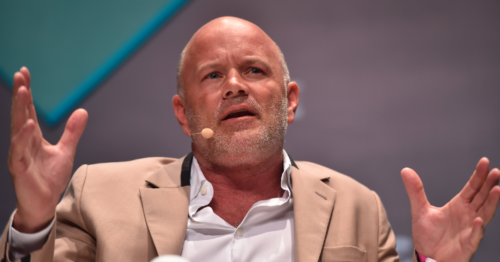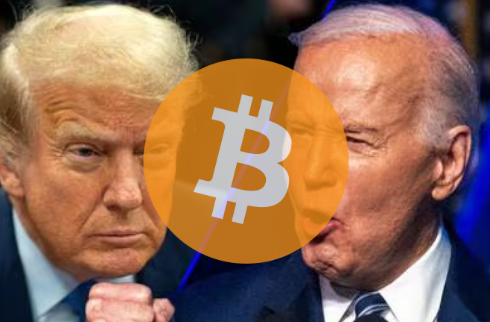On November 5th, the presidential elections will take place in the United States, and candidates are fiercely competing to win the votes of cryptocurrency enthusiasts. The relationship between politics and Bitcoin has never been as close as it is in these elections.
At an event organized by investors David Sacks and Chamath Palihapitiya, and according to statements from Trevor Traina, former Trump administration ambassador to Austria and current head of business at Worldcoin, Trump managed to raise $12 million for his campaign. Among the attendees were the Winklevoss twins, founders of the Gemini exchange, and executives from Coinbase, a key company in managing funds for major Bitcoin ETF issuers in the U.S.
Bitcoin: A Campaign Strategy
This year’s presidential elections have seen an increased relevance of Bitcoin and cryptocurrencies among candidates. Although Ron DeSantis and Vivek Ramaswamy, two pro-Bitcoin candidates, have dropped out of the race, Robert F. Kennedy Jr. and the libertarian Chase Oliver remain in contention. Trump, who previously criticized Bitcoin, has changed his stance. After launching NFT collectibles in 2022 and Ordinals earlier this year, he now promises to ensure Bitcoin’s future in the United States, support self-custody, and free Ross Ulbricht, the creator of Silk Road.
Current President and Democratic candidate Joe Biden has also shown a shift in stance. At the end of May, the White House issued a statement expressing its intention to develop balanced legislation for cryptocurrencies. This contrasts with the more restrictive approach of the past year, marked by arrests and FBI warnings about platforms without Know Your Customer (KYC) measures. This change has surprised many in the industry.
The Influence of Bitcoiners
For industry figures like Mike Novogratz, CEO of Galaxy Digital, the shift in politicians’ stances is clearly motivated by the elections. “There are more cryptocurrency owners in the United States than dog owners,” Novogratz noted, highlighting the 85 million Americans who own cryptocurrencies and their potential electoral impact.

The success of Bitcoin spot ETFs in the U.S. has also influenced this change in attitude. The adoption led by BlackRock and the interest from major banks like JP Morgan and Morgan Stanley have underscored the importance of Bitcoin for the country’s major capital markets. It’s not just about the number of voters but their ability to fund campaigns, making the vote of digital asset investors a crucial target for candidates.











